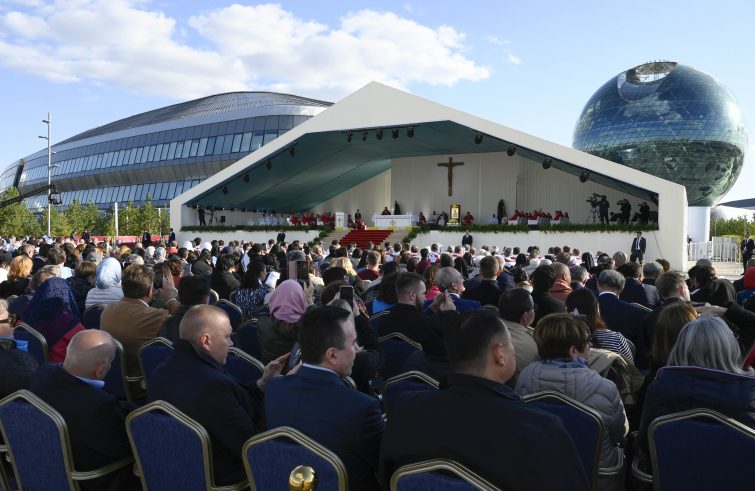
“This land has experienced other kinds of painful bites in its history. I think of the fiery serpents of violence, atheistic persecution and all those troubled times when people’s freedom was threatened and their dignity offended”. Pope Francis said this in the homily of the Mass he celebrated at EXPO Grounds in Nur-Sultan. Reflecting on the readings, he focused on two images: the “serpents that bite” and the “serpent that saves”. “How often have we grown dry, disheartened and impatient in our own personal deserts, and lost sight of our journey’s goal!”, the Pontiff remarked: “Here too, in this vast country, there is a desert. For all its great natural beauty, it can also remind us of the weariness and aridity that we at times bear in our hearts. Moments of fatigue and trial, when we no longer have the strength to look up towards God. Situations in our lives when, as individuals, as Church and as a society, we can be bitten by the serpent of distrust, poisoned by disillusionment and despair, pessimism and resignation, and caught up only with ourselves, lacking all enthusiasm”. “We do well to keep alive the memory of those sufferings – the Pope said -and not forget certain grim moments; otherwise, we can consider them water under the bridge and think that now, once and for all, we are on the right road”. “No. Peace is never achieved once and for all; like integral development, social justice and the harmonious coexistence of different ethnic groups and religious traditions, it must be achieved anew each day”, the Pope warned. Commitment is demanded on the part of all if Kazakhstan is to keep growing in “fraternity, dialogue and understanding… building bridges of solidarity and cooperation with other peoples, nations and cultures. Yet even before that, we need to renew our faith in the Lord: to look upwards, to look to him and to learn from his universal and crucified love”.
